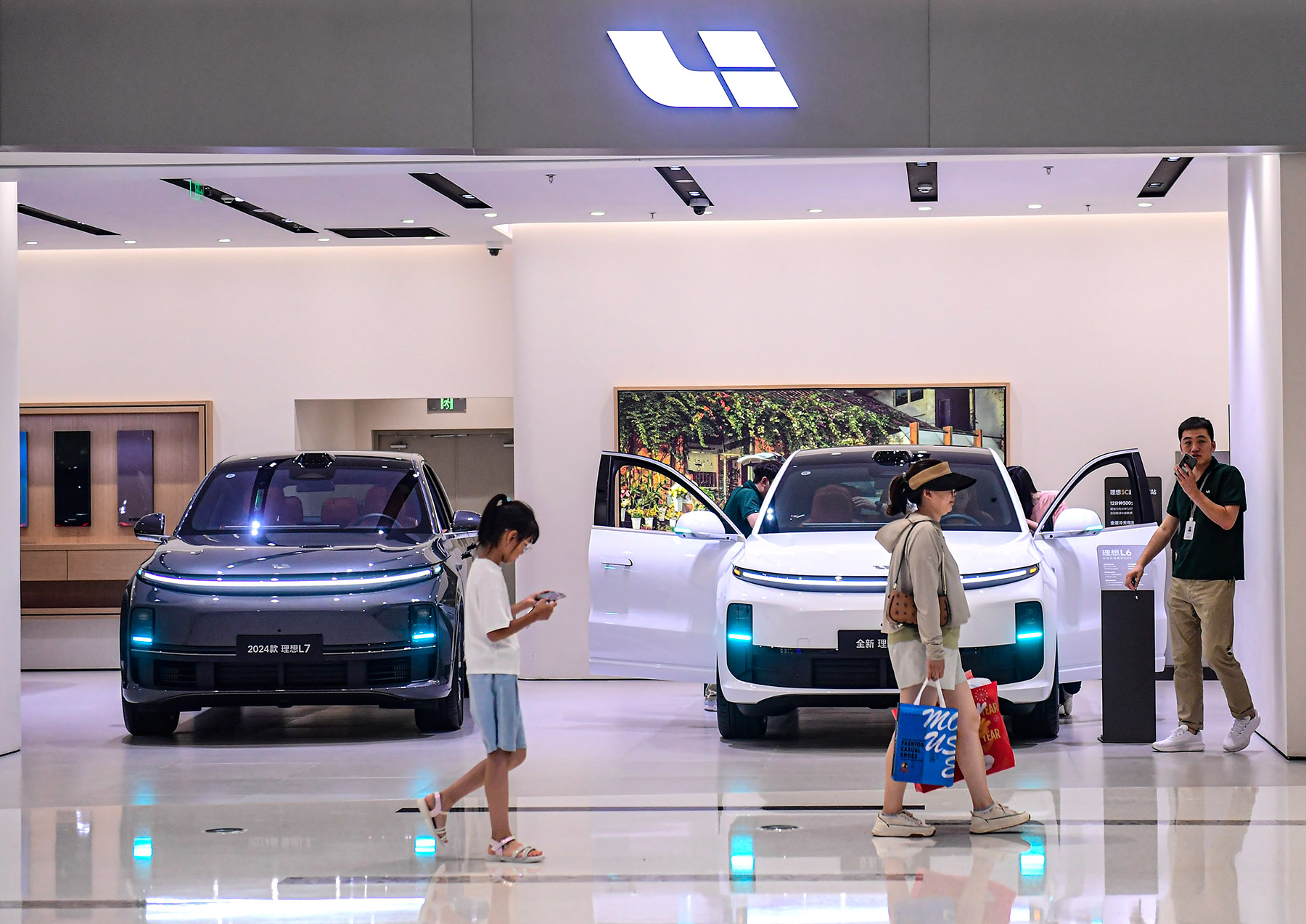Major automakers record substantial rise in first-half performance

Chinese automakers saw a significant increase in car sales in June, with several new energy vehicle brands achieving their best monthly sales performance of the year thanks to a series of promotional events and trade-in stimulus policies.
BYD, with its Dynasty and Ocean lineups of electric vehicles and plug-in hybrids, led with 341,658 units sold in June, up 35 percent year-on-year. Its first-half sales reached 1.61 million units, an increase of 28.46 percent year-on-year.
READ MORE: Chinese automaker BYD launches 3rd EV model in Japan
BYD has achieved 44.64 percent of its 2024 sales target, which is to grow at least 20 percent or more, set by Chairman Wang Chuanfu. With new models set to hit the market in the second half of the year, reaching the target should be easy.
Chery sold 200,412 vehicles in June, a 38 percent increase year-on-year. Its NEV sales soared 230.6 percent to 44,851 units in the month. More than 80 percent of the new products Chery launched this year are NEVs.
For the first half of 2024, the group sold 1.1 million vehicles, up 48.4 percent year-on-year, breaking the 1-million mark for the first time. Among them, almost half — 532,158 units — were exported, seeing a 29.4 percent rise year-on-year.
Geely Auto, including Lynk & Co and Zeekr, sold 166,100 vehicles in June, up 24 percent year-on-year. Its NEV sales soared by 88 percent to 66,000 units, accounting for 40 percent of total sales.
In the first half, Geely's cumulative sales reached 955,700 units, a 41 percent year-on-year increase. The automaker raised its 2024 sales target by 5 percent, from 1.9 million units to 2 million units, last week, thanks to the strong sales performance.
Its premium EV marque Zeekr delivered more than 20,000 vehicles for the first time in June with an 89 percent year-on-year growth.
Zeekr CEO An Conghui said on Wednesday that Zeekr aims to achieve a monthly sales target of 20,000 units in the third quarter and peak at 30,000 units in a single month in the fourth quarter.
The company is confident in reaching its 2024 sales target of 230,000 units. In the first half, Zeekr delivered 87,870 units, marking a 106 percent year-on-year growth.
The competition among NEV startups intensified in the first half of the year. Li Auto delivered 47,774 new vehicles in June, regaining the top spot on the NEV startup chart. It was also the first month this year that its monthly deliveries had exceeded 40,000 units.
The achievement can be attributed to factors such as increased production of its new L6 SUV, which sold more than 20,000 units in June, improved dealership efficiency and price reductions.
Li Auto's first-half sales reached 188,981 units, ranking second among NEV startups, just after Huawei's Harmony Intelligent Mobility Alliance, which sold 194,207 vehicles during the period. In June alone, HIMA, which includes Aito, sold 46,141 units.
Nio delivered 21,209 vehicles in June, jumping 98 percent year-on-year. Its sales from January to June reached 87,400 units, growing 60.2 percent compared with the same period of 2023.
The startup has started presales of its affordable Onvo L60 coupe SUV, which will be delivered in September. The L60 is expected to boost Nio's sales in the second half of this year.
Leapmotor reported a delivery of more than 20,000 vehicles for the first time in June with a 52.3 percent year-on-year increase.
Xpeng sold 10,668 units in June, up 24 percent year-on-year. Xpeng has fallen out of the top five in sales among NEV brands.
ALSO READ: China to boost policy support for smart cars
It debuted the M03 on Wednesday, the first model under the Mona series, priced below 200,000 yuan ($27,500). The electric sedan, to be launched in August, could be the key to Xpeng's sales growth.
For Xiaomi Auto, which is still in a crucial stage of increasing production capacity, deliveries have been increasing over the past three months, exceeding 10,000 units in June. It has achieved 25.69 percent of its 2024 target of 100,000 units.
Although most NEV startups saw sales growth in the first half, they fell short of achieving half of their 2024 sales target, typically reaching only around 30 percent.
The underperformance in achieving sales targets also affects dealerships, with only 18.4 percent of them meeting their sales goals in the first half. Meanwhile, 13.5 percent of them fell short of reaching 50 percent of their goals, based on a survey by the China Automobile Dealers Association.


